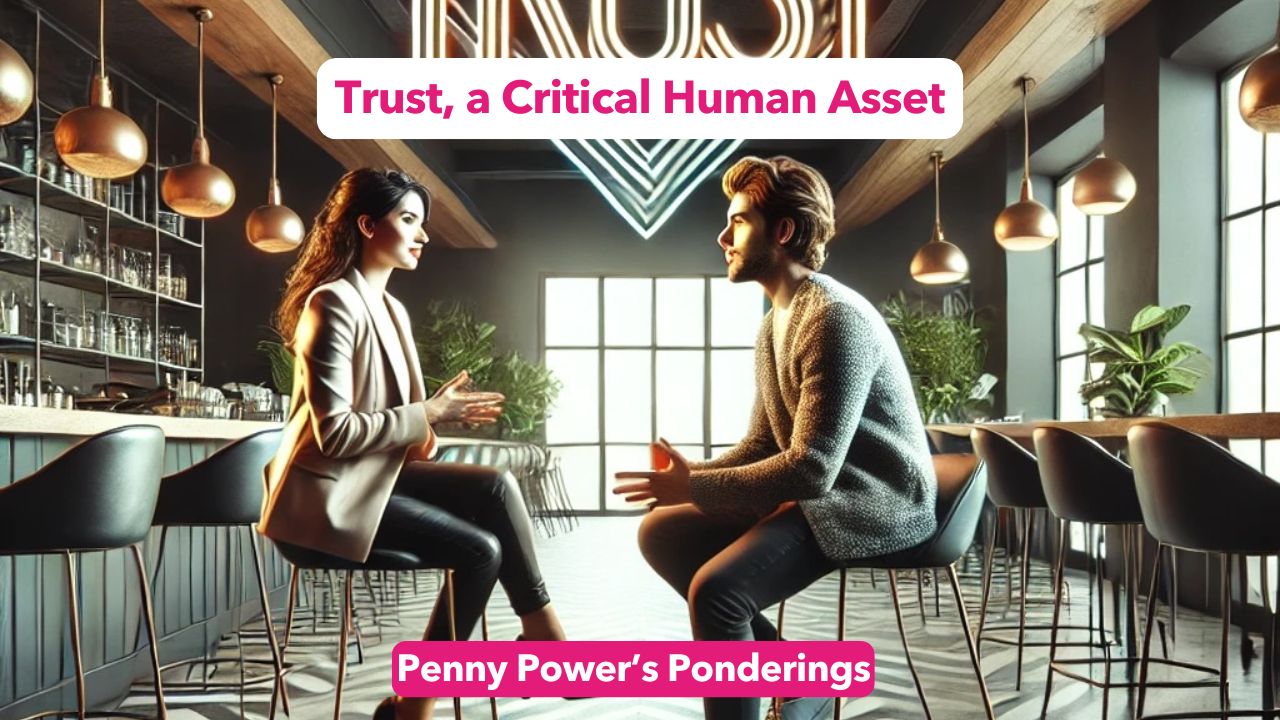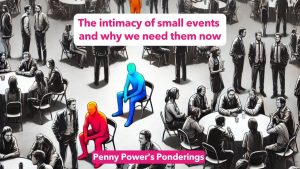This Tuesday, in my Ponderings Newsletter, I’m diving deep into a critical human asset: TRUST. This delicate yet immensely powerful asset lies at the core of every thriving person, organisation, and community.
In a world increasingly shaped by digital and AI advancements, I remain focused on the power of our hearts and emotions to counter disconnection. As leaders and service providers, how can we maintain human connections that reassure our peers and clients? How do we show them they deeply matter and that they can trust us with their thoughts, challenges, and ambitions?
Trust, for us, isn’t just a marketing term; it’s the very fabric of our interactions.
Reputation is a testament to this trust. Several times a week, people apply to join Thomas and I in our community. They don’t cite our efficiency or uniqueness; they mention a word that has always been our deepest value: I TRUST you and Penny.
Since 1998, despite personal and financial challenges, we’ve prioritised human connection in our communications and commitments while also ensuring we stay right at the front of using and learning advancements in tech since 1983.
Sharing our journey of Trust here, isn’t about self-promotion—it’s a reminder, through proof, that people and long-term relationships matter above all. Trust doesn’t just happen; it’s built through consistent words, actions, and connections, especially within a community.
I want to explore four key pillars of trust that have been resonating deeply with me lately: This ‘equation for Trust’, was recently stated by Dr Tharaka (Dr T) Gunarathne.
The 4 Key Pillars of Trust
1. Credibility
Credibility starts with honesty—what you see is what you get. There’s no room for hiding behind facades or overplaying our successes. Trust grows when we present our true selves, including the struggles, not just the victories. It’s about showing up genuinely, without the need to inflate or downplay who we are.
2. Reliability
Reliability is the consistency of our actions over time. Trust thrives when people know they can depend on you—not just once, but consistently. It’s about being there for others, keeping our promises, and showing that our values translate into our behaviour, day in and day out.
3. Intimacy
Intimacy speaks to how approachable, warm, and empathetic we are as individuals. It’s the quality that allows others to feel safe sharing their thoughts and emotions. By creating spaces of comfort and openness, we build the kind of trust that turns acquaintances into true friends and allies.
4. Low Self-Orientation
This is about keeping selfishness in check. Trust doesn’t flourish where there’s an obvious agenda or where people feel like they’re being used. When our focus is on the collective good rather than just personal gain, it’s easier for others to believe in us, feel secure, and share openly.
I am deeply aware that our lives are easily taken over with rushing to complete tasks, managing our daily challenges and seeking growth. However, one thing I have learned in life, that has protected Thomas and I, saved us and helped us rebuild from unexpected downturns and pains, is the people that have my back. They know who we are and our values, and that has enabled us sot pivot, innovate and come back from disruption and chaos.
Trust is like an insurance product, we all need it at some point in our lives, and if we haven’t invested in it already, we can’t just buy it and hope that they will support you with your current pain and challenges, you have to have invested in it for a while.
So this week, spend time with people, show them they matter, enable time around a conversation to be interested in others, small moments build to great trust.
If you would like more of this dropped into your inbox weekly please join our mailing list.



